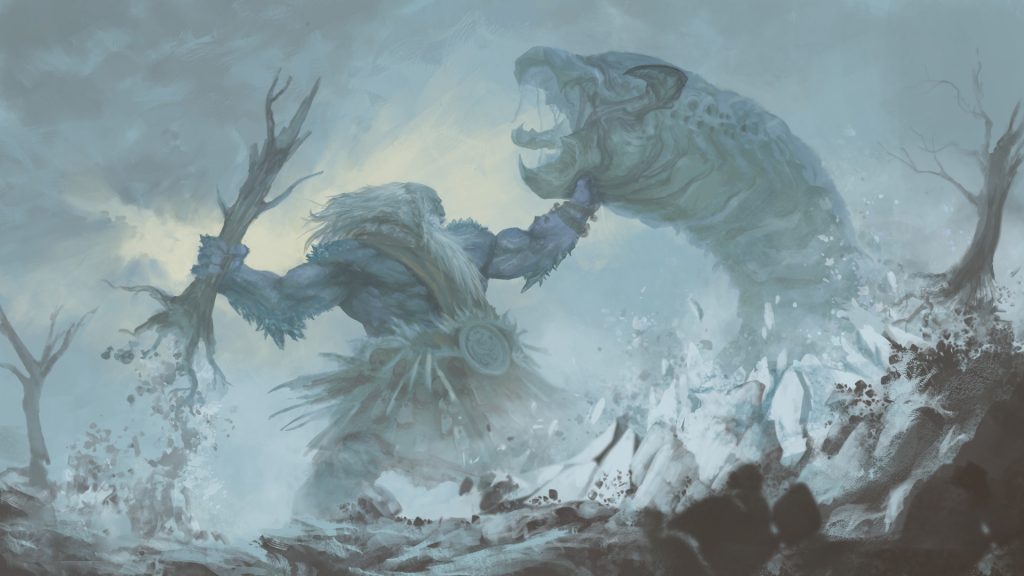Whο are the Nords?
Far to the north, in the snow covered lands of what was once Jotunheimm, the land of Giants, mankind has risen once more after the apocalypse devoured their gods and unleashed the plague of giants upon them. Led by the Einherjar, living demigods of battle who survived the untimely death of their gods, the Nords have clawed back control of their lands at a tremendous cost. With their own heroes losing control of their powers and devolving into beasts even as their descendants struggle to contain the divine power of the blood coursing through their veins, the Nords have been forced to blur the line between what is human and what is a monster, even as they battle to retain their humanity.

How do they play?
How do the Nords play? Nords are all about aggression—destroy or be destroyed. A typical Nord strategy involves applying relentless pressure on the opponent until they break. Masters of ambush and surprise, the army thrives on momentum, springing ambushes through Zonal Terrain and waiting for the perfect moment to strike while the enemy is distracted and engaged.
Whether you want to flood the battlefield with Raiders, Ulfhednar, and Bearsarks—stalk and hunt your opponents with werewolves and packs of wild beasts—or trample them to dust with mighty Jotnars and the elite forces of the Exalted, the Nords are for you!
Why should I collect them?
If you enjoy the Norse aesthetic, a wide variety of troops between Raiders and Huskarls to Trolls and Ugr, to Beastpacks and Ice Jotun, Nords have one of the most varied profiles on the tabletop. Their playstyle encourages aggressive tactics so if you enjoy having and keeping the initiative you’ll enjoy it. In addition Nords have a variety of options to control their opponents, between their spells and supremacy abilities so more methodical and sneaky generals will enjoy Nords too.

Where do I start?
If you wish to start the Exalted, the mightiest of the mortals and blooded who lead their Giants into battle, a Jarl and Konungyr is essential, with Bow Chosen (to be re-released in plastic later this year) and Huskarls clearing the way for a a mighty Mountain Jotnar can make a fantastic starting point.
If you want to start the Half-Bloods, the non-humans of the army, from the nigh unkillable Trolls, to the vicious Beastpacks, an excellent start would be to pick up a Blooded, with a bodyguard of Trolls, Ugr and Fenr Beastpacks would make an excellent starting place.
If you’d like to start with the Mortals, the men who have conquered Mannheim from simple Raider to frothing berserkers, the Nords: Single Player Starter Set is the best choice to begin your journey.